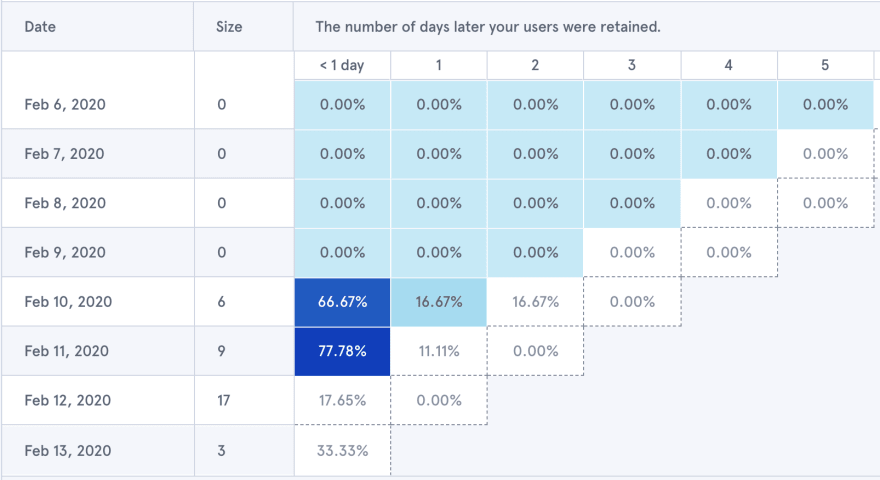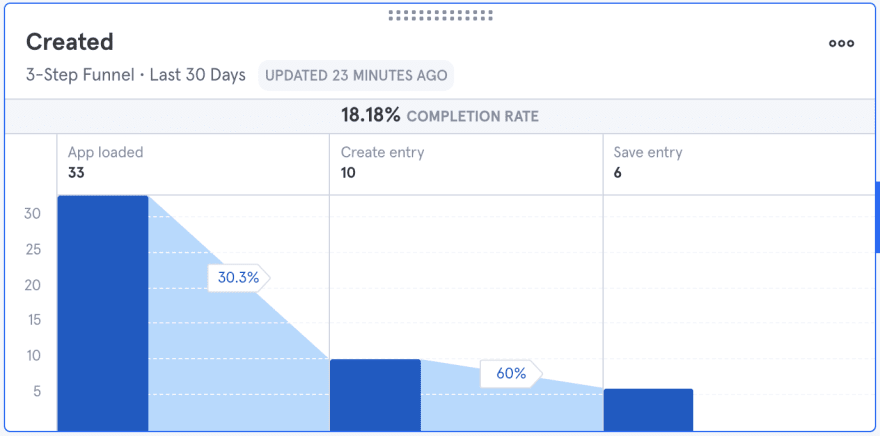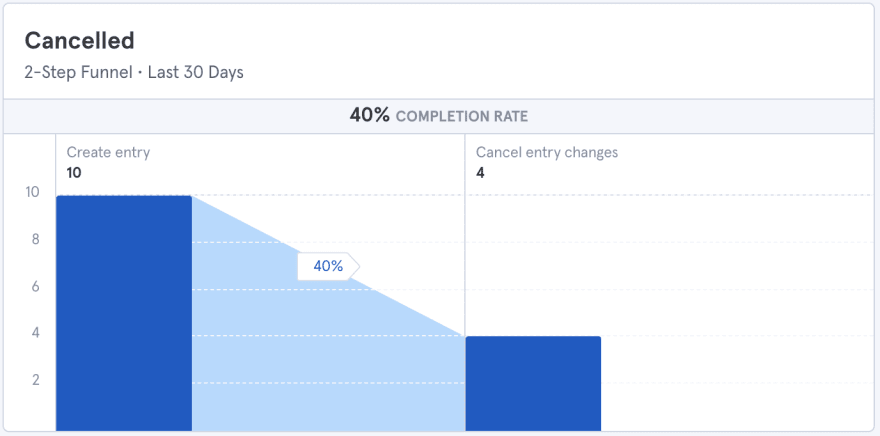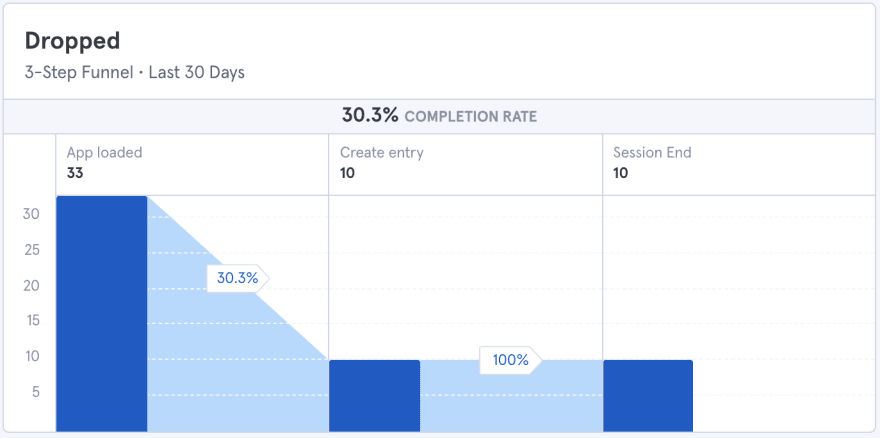The fundamental activity of a startup is to turn ideas into products, measure how customers respond, and then learn whether to pivot or persevere. All successful startup processes should be geared to accelerate that feedback loop.
Reaching the end of our first week of our experiment with The Lean Startup is a good opportunity to look back and take stock of what we have learned.
In my previous article I mentioned how I set up Mixpanel to learn if and how people are using the application. I should also mention that I have been crossposting my articles to DEV Community and LinkedIn, so it would be interesting to find out how visitors from either site use the application.
Cohorts
As I mentioned, having published my articles across two communities means that people testing the product from them will have undoubtedly different characteristics.
By simply looking at the referrer attribute from the analytics events I can split my audience into three cohorts:
- Those who manually entered the url in the browser and therefore there is no
referrerentry. This are "direct visitors" - Those who came from LinkedIn
- Those who came from the DEV Community
The first difference I've found is that those coming from LinkedIn are all located in New Zealand and Australia, where my professional network lives. Whereas those from the DEV Community and direct visitors come from all over the world.
Exposure
Another great learning was that site visitors spike after I post an article, when it featured high in their feeds, and then we have a long tail of visitors that might come across the article later on.
This suggests that actively engaging those communities serves as a great source of organic traffic to the site. Given that at this point the application is a simple Proof of Concept, this level of engagement is adequate. But it also means that when we have reached an MVP it will be a good thing to raise the level of engagement not only in these two communities, but extend to others like Product Hunt, Hacker News, etc.
Analytics
As I mentioned, I'm using Mixpanel to track the application usage. The great thing is that it gives me great basic insights as to how people are using the application without much effort on my behalf.
The first thing I will look into is user retention. This means how many users return to the site in the days after their first visit. Given that the site has been up for less than a week, and that the product is still a PoC, I don't expect to see a great retention rate.
But as you can see, and to my surprise, our retention rate is not too bad.
Next, I will prepare some funnels to see if people are engaging with the product the way I expected. I will look into how many people complete the process of creating log entries and saving them. How many start to create an entry but cancel the changes. And how many drop off the site without much interaction.
Users that completed the main goal:
Users that started but cancelled the changes:
Users who dropped off the site:
Conclusions
As we can expect, the numbers are not shouting amazing success. But that's to be expected. First, the site has been up and running for less than a week. Is hard to find patterns in the data, or even have a solid population size to test with. Second, the product is a simple PoC at this stage, so engagement will always be poor.
But nevertheless this are very encouraging results. People are engaging with this series of articles and the product. Which means that there is interest and maybe a potential fit between my idea (the Digital Bullet Journal) and their needs.
Try it out
So here it is: DiBuJo
Give it a go, and let me know what you think of it in the comments section!






Top comments (0)